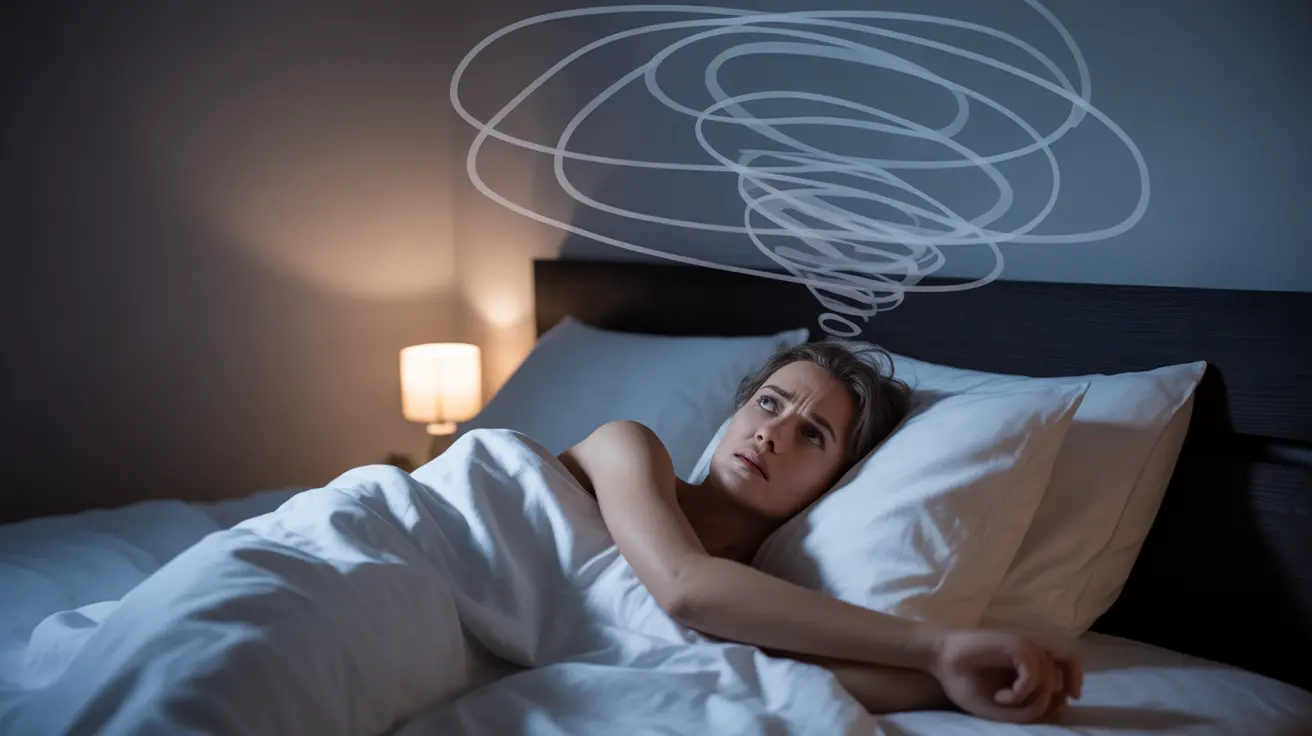The relationship between anxiety and insomnia creates a challenging cycle that can significantly impact your quality of life. When anxiety disrupts sleep and poor sleep worsens anxiety, it can feel like you're trapped in an endless loop. Understanding this connection and learning effective management strategies is crucial for breaking free from this distressing pattern.
This comprehensive guide explores the intricate relationship between anxiety and insomnia, offering evidence-based solutions and practical advice for managing both conditions simultaneously.
The Anxiety-Insomnia Connection
Anxiety and insomnia often form a bidirectional relationship, where each condition can trigger or worsen the other. When anxiety keeps your mind racing at night, it becomes difficult to fall asleep. Consequently, the resulting sleep deprivation can increase anxiety symptoms, creating a self-perpetuating cycle.
Common Symptoms and Experiences
People experiencing anxiety-related insomnia often report:
- Racing thoughts when trying to sleep
- Physical tension and restlessness
- Difficulty falling asleep despite feeling tired
- Waking frequently during the night
- Worrying about not getting enough sleep
- Daytime fatigue and irritability
Breaking the Cycle: Treatment Approaches
Cognitive Behavioral Therapy (CBT)
CBT has proven particularly effective for treating both anxiety and insomnia simultaneously. This approach helps identify and change negative thought patterns and behaviors that contribute to both conditions. CBT can teach you practical techniques for managing anxious thoughts and developing healthy sleep habits.
Lifestyle Modifications
Several lifestyle changes can significantly impact both anxiety and sleep quality:
- Establishing a consistent sleep schedule
- Creating a relaxing bedtime routine
- Regular exercise (but not too close to bedtime)
- Limiting caffeine and alcohol intake
- Maintaining a sleep-friendly bedroom environment
Stress Management Techniques
Incorporating stress-reduction practices into your daily routine can help manage both conditions:
- Deep breathing exercises
- Progressive muscle relaxation
- Mindfulness meditation
- Gentle yoga or stretching
- Journaling before bed
When to Seek Professional Help
It's important to consult a healthcare provider if:
- Your symptoms persist for more than a few weeks
- Anxiety or insomnia significantly impacts your daily functioning
- You experience panic attacks or severe anxiety
- Over-the-counter remedies aren't providing relief
- You're considering medication options
Frequently Asked Questions
What are the common symptoms of anxiety insomnia and how does it feel to experience it?
Anxiety insomnia typically manifests as difficulty falling asleep due to racing thoughts, physical restlessness, and heightened alertness. People often describe feeling "wired but tired," experiencing racing hearts, muscle tension, and an inability to quiet their minds despite physical exhaustion.
How do anxiety and insomnia affect each other, and why do they often occur together?
Anxiety can trigger insomnia by keeping the mind active and the body in a state of heightened arousal. Conversely, lack of sleep can increase anxiety symptoms by affecting emotional regulation and stress response. This creates a cycle where each condition reinforces the other.
What are the best treatments and lifestyle changes for managing both anxiety and insomnia at the same time?
The most effective approach typically combines cognitive behavioral therapy (CBT), stress management techniques, and lifestyle modifications. This may include establishing consistent sleep schedules, practicing relaxation techniques, regular exercise, and limiting caffeine and screen time before bed.
Can improving my sleep help reduce anxiety, and what are some effective natural ways to do this?
Yes, better sleep can significantly reduce anxiety symptoms. Natural methods include maintaining a consistent sleep schedule, creating a relaxing bedtime routine, practicing meditation or deep breathing, ensuring your bedroom is dark and cool, and avoiding screens before bedtime.
When should I see a doctor for anxiety insomnia, and what are the available medical treatment options?
Seek medical help if symptoms persist for more than a few weeks or significantly impact your daily life. Medical treatment options may include prescription sleep medications, anti-anxiety medications, or antidepressants, along with therapy. Your healthcare provider can develop a personalized treatment plan based on your specific symptoms and needs.




